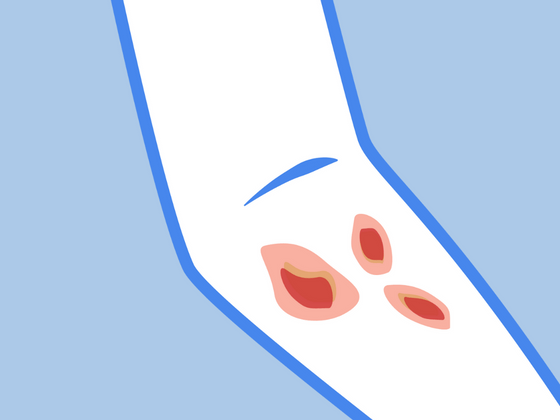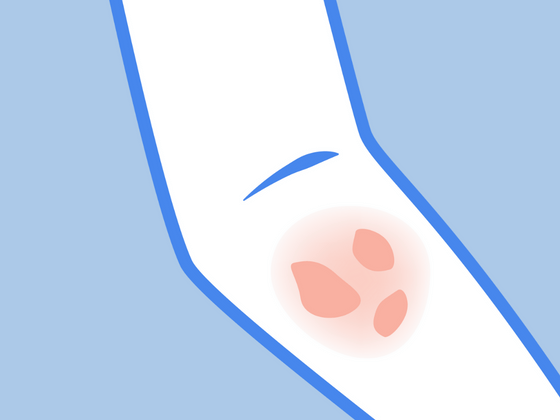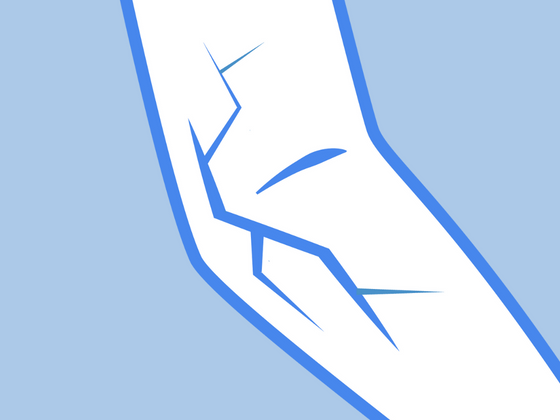If you have eczema - or know somebody who does - you’ve probably wondered at some point if eczema is contagious. Characterized by rough, red, and extremely itchy patches of skin, many people assume they will “catch” this rash or believe they’ve ‘caught’ it from someone else.
Fact: Eczema is not contagious. With that in mind, let’s explore eczema in more depth to give you a better understanding of everything this skin condition entails, including symptoms, causes, and treatment options.
If you are suffering from eczema, please bear in mind that we are in no way medical professionals. If you are experiencing severe symptoms or infections, speak to a medical professional as soon as possible.
What Is Eczema?
Also called dermatitis, eczema is an auto-immune skin condition affecting 10-20% of the population. People with eczema usually have an overactive immune system which triggered by a substance outside or inside the body, responds with inflammation. This can result in patches of red, dry, flaky skin appearing most commonly on the face, hands, feet, scalp, and on back of the knees. Accompanied by intense itching, it can develop in both babies and adults.
Symptoms range from mild to severe with the possibility of intense flare-ups and other times where symptoms are barely noticeable.
Is Eczema Contagious By Touch?
To put it simply, no, eczema is not contagious by touch. If you notice a rash on your skin and think you’ve got it from a friend or coworker, most likely, it’s something else and not eczema.
That being said, eczema often causes cracked or broken skin, leaving your body vulnerable to infections. This secondary infection may be contagious, for example Eczema Coxsakium a painful and highly contagious caused by the virus coxsackievirus
In addition, while eczema does not spread from person to person, it can spread to other parts of the body and your symptoms can worsen because of scratching. We’ll go into more details on how to protect your wounds from scratching, and reduce your risk of infection later.
So How Did I "Get" Eczema?
Good question! The exact cause of eczema is actually unknown, but research suggests the skin condition is developed because of a combination of environmental and genetic factors.
Bear in mind that the reason children are more likely to develop eczema if their parents have it, is purely because of the genetic link, and has nothing to do with eczema being contagious by touch.
In terms of environmental factors, there are no shortage of possible triggers. Even emotional stress is considered a trigger, as many people report that their symptoms worsen under pressure. Dry skin during the colder months and sweat during hotter seasons can also trigger eczema flare-ups.
Although irritants vary from person to person, the most common culprits include:
Allergens:
- Pet dander
- Dampness
- Pollen
- Dust Mites
- Mold
- Sensitivity to certain foods
- Certain fabrics, such as wool, polyester, latex and nylon
Irritants:
- Fragrances and chemicals found in soaps and beauty products
- Laundry Detergent
- Dyes
- Metals, especially nickel
- Cigarette smoke
To learn more about what can trigger flare-ups and how you can avoid these triggers, check out our previous post Eczema 102: What Triggers Eczema?
Is My Eczema Infected?
Eczema leaves your skin feeling dry and itchy which leads to the intense urge to scratch. The more you scratch, the more likely your skin will crack, allowing for small wounds to form. These openings can become infected with viruses, bacteria, and fungi and can possibly lead to an eczema staph infection.
Through close contact, it’s possible to pass on this secondary infection to another person.
If your eczema is infected, you’ll notice the following symptoms:
- Blisters or boils
- Redness spreading beyond the original rash
- Severe itchiness and pain
- Clear or yellow discharge
If you are suffering from infection or suspect that you have an infection, make sure to speak to a medical professional immediately.
How to Prevent Infection
The key to preventing an infection is resisting the urge to scratch. This is easier said than done, we know, especially in the middle of an intense flare-up!
Thankfully, there are a variety of different natural products and protective clothing that can help prevent the infamous itch-scratch cycle!
Natural Creams and Sprays
We love this Organic Manuka Skin Smoothing Cream. The perfect blend of Manuka honey, beeswax, and organic tree nut-free oils does wonders for soothing irritated skin. Gentle, nourishing, and rich in emollients, you’ll find that even the driest skin is no match for its hydrating power.
For more intense itching urges, try this Emily Skin Soothers for Itchy Eczema. It soothes dry, itchy rashes like a dream. Made with only the most natural ingredients of the highest quality, this creamy skin soother is the perfect itchy eczema treatment.
You can also beat the itch with this Organic Aloe Vera for Eczema Skin Soothing Spray. Made with calendula and aloe vera, it’s perfect for soothing flare-ups anywhere on the body - including the face!
Protective Clothing
Eczema mittens and gloves are great for protecting the skin because they eliminate the possibility of scratching.
These ScratchSleeves with Scratch Mittens are also the perfect tool for keeping your little ones skin protected. Not only do they keep hands covered and prevent scratching, but they can be pulled back for playing or eating.
Lastly, make sure to check out Remedywear™ that offers a wide range of both adult and children eczema garments like:
What methods do you use to stop yourself from scratching? Let us know!
References:
https://www.medicinenet.com/is_eczema_contagious/article.htm
https://www.healthline.com/health/is-eczema-contagious
------------------

Bio: Laura is a contributor and content developer for The Eczema Company. She is in no way a medical professional. Her comments, suggestions, and reflections are not intended to replace any medical advice. Always seek the help of a medical professional before undertaking any diet or lifestyle changes.








